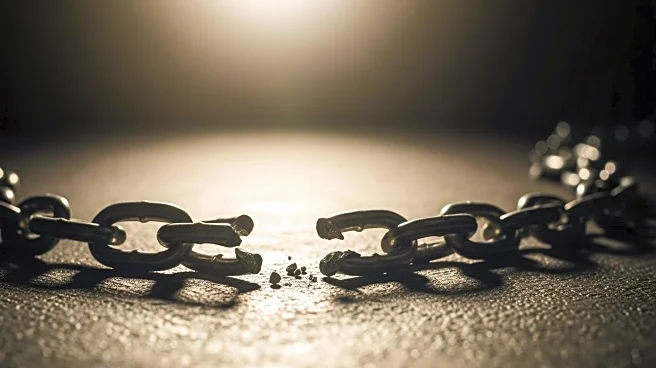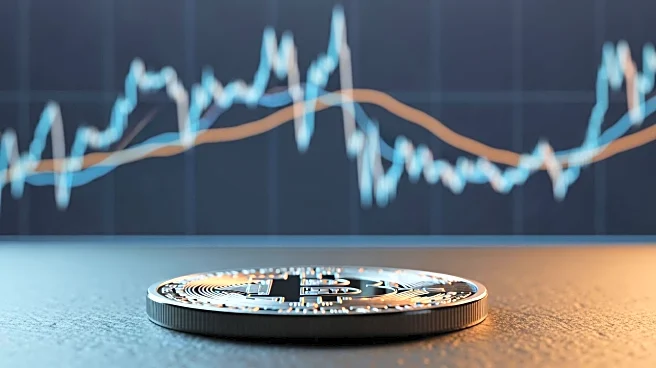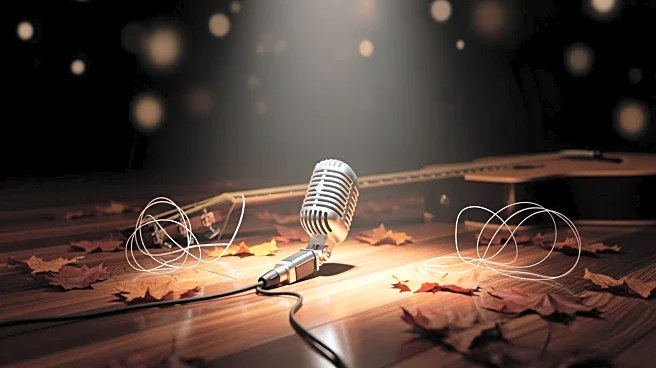What's Happening?
A Washington D.C. jury acquitted Sean Dunn, known as 'Sandwich Guy,' of assaulting a federal officer, marking a setback for the Trump administration's efforts to penalize protesters opposing federal intervention
in the city. Dunn gained notoriety for throwing a sandwich at a federal officer during protests against President Trump's deployment of federal forces in D.C. The jury's decision reflects a broader trend of skepticism towards government prosecutions, with D.C. grand juries often refusing to indict protesters on charges of violence. This case highlights the jury's role in expressing dissent against perceived government overreach.
Why It's Important?
The acquittal underscores the power of jury nullification as a form of civil resistance, particularly in a city like Washington D.C., which lacks full self-governance. The jury's decision serves as a check on federal authority, illustrating the public's ability to push back against what they perceive as unjust prosecutions. This case is significant as it reflects broader public sentiment against the Trump administration's aggressive tactics in D.C., and highlights the role of juries in safeguarding democratic principles. The verdict sends a message to the administration about the limits of its power and the importance of respecting civil liberties.
What's Next?
The acquittal may embolden other protesters and activists in D.C. to continue their opposition to federal interventions. It could also lead to increased scrutiny of the administration's legal strategies and the potential for more cases of jury nullification. The administration might reassess its approach to handling protests and dissent in the capital, considering the public's resistance to perceived overreach. Legal experts and civil rights advocates may use this case to argue for reforms in how protest-related cases are prosecuted, emphasizing the need for fair and just legal processes.
Beyond the Headlines
This case highlights the ethical and legal dimensions of civil disobedience and the role of juries in upholding justice. It raises questions about the balance between maintaining public order and respecting individual rights. The jury's decision reflects a broader cultural shift towards questioning authority and advocating for democratic values. It also underscores the importance of jury independence in the legal system, serving as a reminder of the judiciary's role in protecting citizens from potential government overreach.









